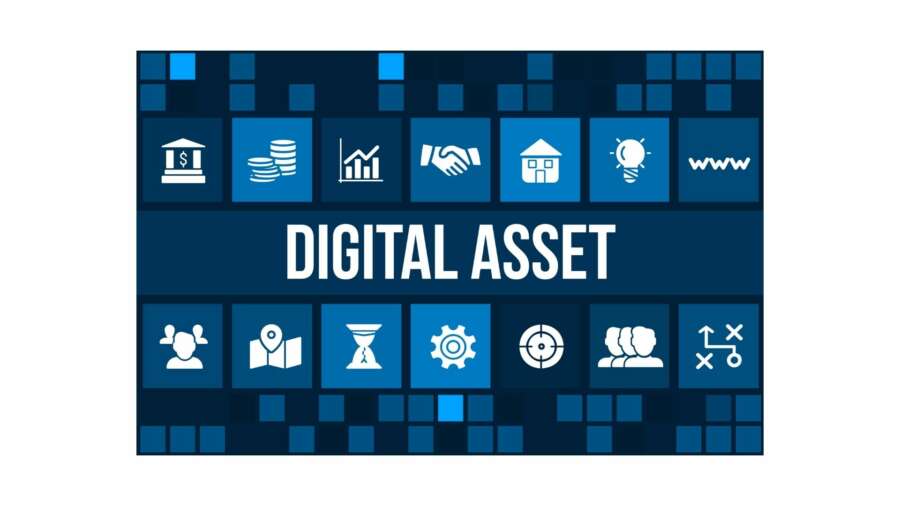
By Thomas Wardle, Wills, Trusts and Tax Solicitor at Aaron & Partners
When thinking about your estate and preparing your Will, it is quite easy to overlook your digital assets. However, failing to make adequate provision for these assets can cause numerous problems for your executors when the time arises to administer your estate.
The Extent of the Problem
A recent study by Direct Line Life Insurance revealed that, in the last 12 months, probate specialists struggled to find all of the financial accounts tied to an estate in 28% of cases, due to the shift towards online banking and electronic record keeping. Any online assets or accounts which your executors do not know how to access (and which they may not even know the existence of) are at risk of becoming irretrievably lost once you pass away.
To take the popular crypto currency Bitcoin as an example, it is estimated that somewhere between 3 and 4 million coins have been irretrievably lost (i.e. the private key required to access these coins cannot be located) and the market value of these locked coins would be in excess of £20bn based on current prices.
Even if you do not believe that you hold digital assets which have a monetary value, information held within emails may still be important to your executors. You may also have photos or videos stored digitally which are of great sentimental value to your family and friends and which you do not wish to see lost or inadvertently deleted.

Thomas Wardle
It was for this very reason that Rachel Thompson was forced to take Apple to court recently in the UK. Ms Thompson’s husband had passed away in 2015 without having made a Will or addressing his digital assets and this gave rise to the need for litigation after Apple had refused to allow Ms Thompson access to her late husband’s iCloud account in order to retrieve precious family photos and video recordings. This was despite Ms Thompson being the only person entitled to the estate under the intestacy rules and her having obtained a Grant of Letters of Administration, which provided her with the authority necessary to manage her late husband’s estate. Eventually, Ms Thompson won her case in 2019, but it took over three years of exertion and thousands of pounds in costs in order for her to finally reach this position. Administering a family member’s estate can always prove to be a difficult time, but here the added distress and costs stemming from the court proceedings with Apple could have been avoided if her husband had made provisions for his digital assets from the outset.
Ensuring Digital Assets Are Accounted For
It is highly recommended to securely keep a physical copy of all of the details required to access your digital resources and to ensure that this record is kept up to date. Different online platforms will have different policies with regards to what can happen to your digital assets in the event of your death and it is important that you familiarise yourself with these policies to ensure that your executors can comply with this.
For some assets, it will also be necessary to identify whether or not they are actually capable of forming part of your estate. For services such as Spotify or Amazon, for example, although you are purchasing media on these platforms, from a legal standpoint you have only acquired a licence to access the songs or videos in question. In these cases, the licence will terminate as soon as you pass away and it will not be possible to assign the licence itself, or the media that your account had access to, to another person after your death.
Also, it is important to check the Terms of Service for any social media sites that you use, as these will often contain provisions for who could access your account in the event that you pass away. Facebook, for example, allow you to appoint a “legacy contact” to manage your profile after you pass away or allow you to choose to have your page memorialised instead.
In terms of your email accounts and any cloud storage accounts that you may use, it is recommended that you familiarise yourself with their Terms of Services too. Often, these will contain provisions that will specify that your account will be deleted after being inactive for a prescribed period of time. Dropbox, for example, will declare free users’ accounts to be inactive if no logins have taken place for 12 months and will then permanently delete all of the files that you have stored following a further 90 days of inactivity. In some cases it is possible to revive an inactive account, but this depends on the service provider and it is advisable to ensure that you made a physical log of the details required to access your accounts, rather than running the risk of them being permanently deleted due to inactivity.
By taking steps now to ensure that your digital assets are accounted for and that the information required to access them is in a format where it will be available to your executors when you pass away, you can mitigate the risk of your online assets becoming lost in an information vacuum.


